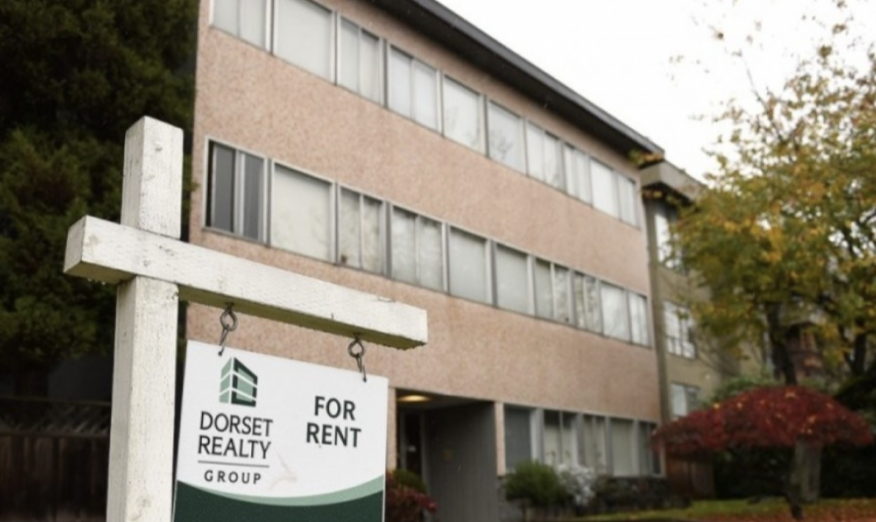As much as we enjoy the dog days of summer, when August hits, our attention turns to a hot topic.
For the coming year, what will the provincial government use to decide the maximum allowable rent increase for residential housing? It never used to be a question.
In B.C., the increase used to be based on the 12-month average percentage change in the All-Items Consumer Price Index (CPI) for the province, ending the previous July. Prior to 2019, this formula was CPI plus two per cent, and had been in place since 2003.
Governments impose such formulas as arm’s-length calculations for good reason. Besides offering stability and consistency, using a set method for raising rent limits the ability for a political party to gain power by swinging votes in the election campaign with promises to change for the benefit of either tenants or landlords.
With the 2024 rent increase announcement approaching, we reviewed the 12-month CPI data from August 2022 to June 2023 (assuming no change for July 2023). By our calculations, the new rate should fall around 5.6 per cent to 5.7 per cent. Simple math and announcement, right?
Not so fast.
Since the NDP took power in BC, using a straightforward formula has all but evaporated in the world of rental housing. For context, we’ve summarized the past seven years of rent increase announcements, including when they took place, the rate that should have been announced and the actual maximum increase.
As you can see below, the formula has been manipulated four out of the past five years. Will the upcoming 2024 announcement mark five out of six?
Historical maximum allowable rental increases in B.C.
|
Year |
Date announced |
Rate using formula |
Actual rate |
Notes |
|
2024 |
TBD – August/September 2023 |
+/- 5.6% |
TBD |
TBD |
|
2023* |
August 29, 2022 |
5.4% |
2.0% |
Rent increases capped at 2% only |
|
2022 |
September 8, 2021 |
1.5% |
1.5% |
Rent increases at CPI |
|
2021* |
September 3, 2020 |
1.4% |
0.0% |
Rent increases cancelled in 2021 |
|
2020* |
September 4, 2019 |
2.6% |
0.0% |
Rent increases cancelled in 2020 |
|
2019* |
September 7, 2018 |
4.5% |
2.5% |
+ 2% extra formula deleted (CPI only) |
|
2018 |
August 21, 2017 |
4.0% |
4.0% |
CPI at 2.0% plus 2.0% |
|
2017 |
August 22, 2016 |
3.7% |
3.7% |
CPI at 1.7% plus 2.0% |
*Year when the NDP government amended rent increases outside of the formula
Raising rents annually assists building owners with making decisions about their plans for capital expenditures, helps recoup some losses from increasing expenses and provides tenants with a known percentage increase, preventing wild swings in their monthly cost.
Rental housing providers have shouldered significant hikes to all of their expenses over the past five years, especially since 2019. It’s not just the lost rent from the years when rate increases were cancelled or capped, it’s the lost opportunity to compound those increases, too. We’ve written several articles that highlight these jumps in expenses with real case studies. The bottom line: From 2019 to 2021, expenses in various categories rose between eight per cent and 250 per cent.
Since 2022, the surge in interest rates to their highest level since the early 2000s has only made the problem worse. With more expenses and less revenue, thanks, in part, to capped and cancelled rent increases, building owners have less funds to spend on large projects and to pay steeper mortgages, rising labour costs, and bigger maintenance and utility bills.
The deterioration goes well beyond existing rental. Every level of government has expressed their desire to expand the supply of rental housing to accommodate thousands of new residents arriving in the region each year. When costs reach historic highs, rental caps prevent new rental projects from getting built.
To be clear, all British Columbians could use a break; everyone is paying more for items like food and gas. And some really need help making rent, so the federal and provincial governments should assist them through subsidies and direct payments. Those who are better off financially, and who can afford their rent increases, should be expected to pay their share of costs.
Cynthia Jagger and Mark Goodman are principals of Goodman Commercial Inc. and publishers of The Goodman Report.




